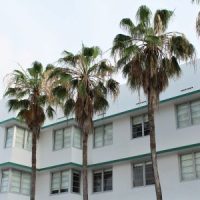Clarifying New Laws For Condominium Buildings After Surfside Collapse

After the collapse of Champlain Towers South in Surfside in June 2021, Florida’s legislature sought to learn from the tragedy. In time, they passed laws seeking to limit the possibility of a similar disaster in the future, including increasing the frequency and requirements of ‘milestone’ inspections, and pledging to base their future plans on the recommendations in the structural integrity reserve studies (SIRS). The original law from 2022, referred to as SBD-4, also created a requirement to fully fund condo reserves for budgets adopted on or after January 1, 2025 – but in 2023, a different bill called SB-154 was passed to clarify certain provisions. As 2024 dawns, condo associations may face confusion about just which requirements they must now abide by, and which can be addressed further down the road.
Fully Funding Reserves … Slowly
Before the south tower’s collapse, Champlain Towers’ condo association had a history of waiving reserve requirements, meaning that there were far fewer funds available for necessary repairs than there should have been. Afterward, the Florida legislature’s bill attempted to simply right what they perceived as wrong, and mandated full reserves. However, many associations argued that simply requiring full funding in the next financial year would bankrupt many of them, resulting in a graduated roll-out of the requirements that will only fully take effect in 2026.
Originally, SBD-4 allowed for 2024 budgets to be adopted as normal, pushing the requirement to fully fund reserves and abide by SIRS recommendations to budgets adopted on or after January 1, 2025. It also allowed the associations not subject to the SIRS requirement (mostly one and two-story buildings) to waive reserves by a majority of all who voted at a meeting. SB-154 made significant changes to SBD-4’s requirements and timelines, and it is the rules established by SB-154 that must be adopted going forward.
A Start Date Is Set
SB-154 made few changes, but the ones it did make were significant. The relevant statute’s modified wording states explicitly that for any budget adopted on or before December 31, 2024, reserves for any SIRS items – in other words, for any repairs deemed to be necessary now or in the near future – must be fully funded and cannot be waived for any reason (unless an alternative funding method is approved by the state). In addition, it changed the procedure for those associations not subject to a SIRS requirement, requiring a majority vote of all voting interests instead of merely a majority of a meeting’s quorum.
What this means for condo associations currently is that associations with fiscal year calendars must pass their 2025 budgets early – by December 18, 2024 – and abide by the requirement to fully fund reserves. This will increase budgets overall, which means increased responsibility for board members and increased vigilance for unit owners. Boards will be less forgiving of delinquent accounts, and some of the more unethical examples may even try to levy assessments on their owners that they are not permitted to levy. The measure is generally seen as good for the public – but not without cost.
Contact A Tampa Condo Association Attorney
If you are a member of a condo board, it can be confusing and concerning to be uncertain of your obligations both as an individual and as a board with a duty of care. A Tampa condo association attorney from the Seward Law Office can help to manage any questions or concerns. Contact our office today at 813-252-6789 to schedule a consultation.
Source:
npr.org/sections/live-updates-miami-area-condo-collapse/2021/06/29/1010976101/timeline-what-we-know-so-far-about-what-led-up-to-the-surfside-condo-collapse
